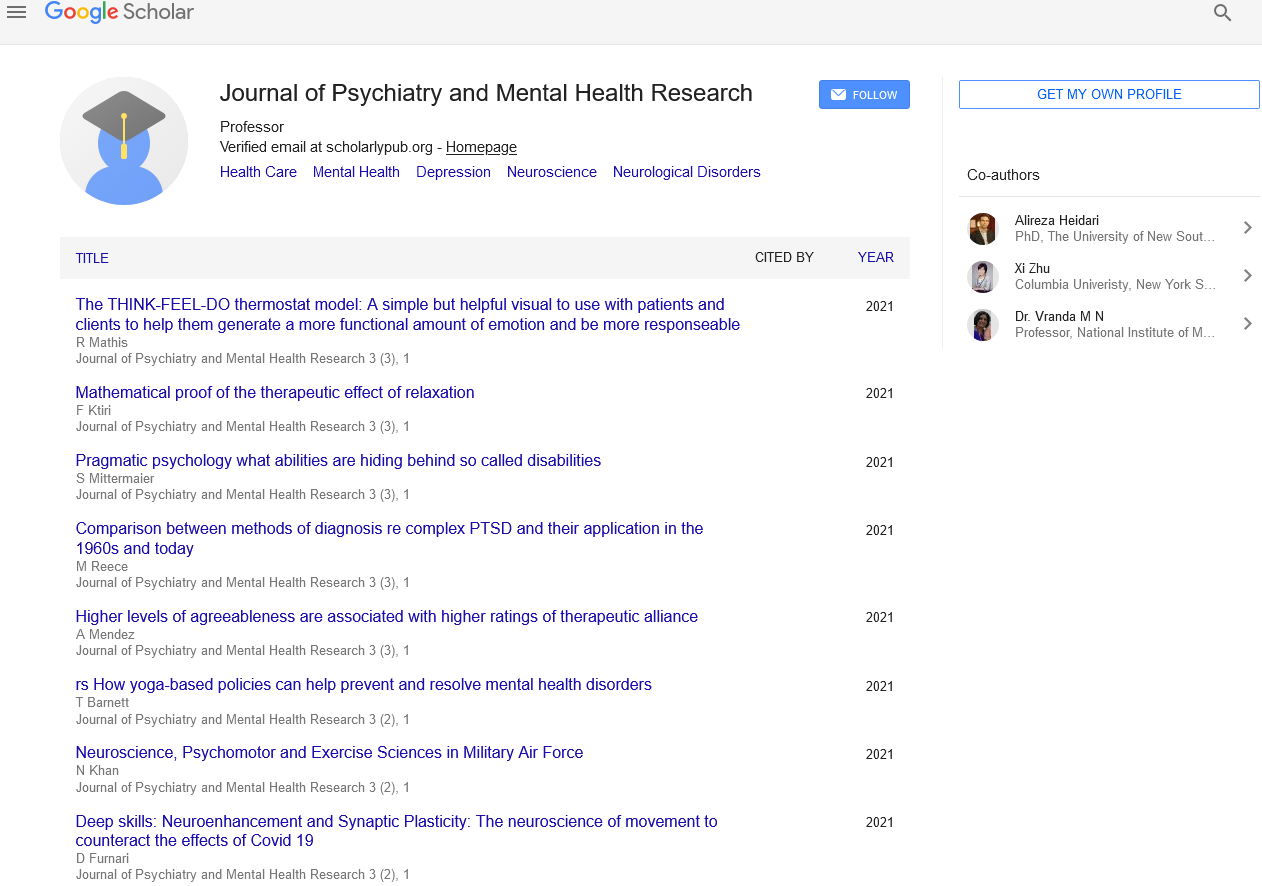
Sign up for email alert when new content gets added: Sign up
Abstract
Cognitive interventions in neural networks for resilience
Author(s): Saadi LotfaliCognitive science, by intervening in neural networks, claims to offer a new approach to treatment and cognitive and behavioral changes. In any activity, one or more brain neural networks are activated and the neural circuit or circuits may be mutually and simultaneously deactivated. Therefore, intervention as a means to facilitate the activation or deactivation (stimulation or inhibition) of neural networks can cause changes in cognition and behavior of individuals. Resilience is an important cognitive function that several brain circuits are involved. The current presentation, as a review study, examines these circuits and proposes strategies as interventions in these networks to increase resilience. In Neuro-cognitive interventions, parts of the brain (circuits) are stimulated and affected through using medication, electrical or electromagnetic stimulants, mental activities or certain behaviors. In the present study, mental and behavioral exercises have been taken into consideration. Exercises and activities that are done mentally or in the form of behavior and doing so will enhance resilience by affecting brain circuits. These interventions cause changes in cognitive functions such as attention, memory, inhibition, emotion regulation, decision making, and other cognitive functions. Most of these changes result in prevention of ego depletion, self-awareness in the form of introspection and extroversion, changes in memory and memory retrieval, reinterpretation, emotion regulation. The purpose of this study is to provide cognitive and behavioral methods that listeners, including therapists, parents, school officials and educators of children and adolescents, can contribute to resiliency by presenting and performing these behaviors and transmitting them to their children so that their self-control can be increased. These findings can be used as complementary therapeutic techniques in clinics or behavioral training to parents. Cognitive psychology is the scientific study of mental processes such as “attention, language use, memory, perception, problem solving, creativity, and thinking”. Much of the work got from intellectual brain research has been incorporated into different other current teaches, for example, intellectual science and of mental examination, including instructive brain research, social brain research, character brain science, irregular brain research, formative brain science, phonetics, and financial aspects. Psychological science is the interdisciplinary, logical investigation of the brain and its procedures. It inspects the nature, the errands, and the elements of comprehension (from a wide perspective). Subjective researchers study insight and conduct, with an attention on how sensory systems speak to, process, and change data. Intellectual capacities of worry to psychological researchers incorporate language, discernment, memory, consideration, thinking, and feeling; to comprehend these resources, subjective researchers acquire from fields.




